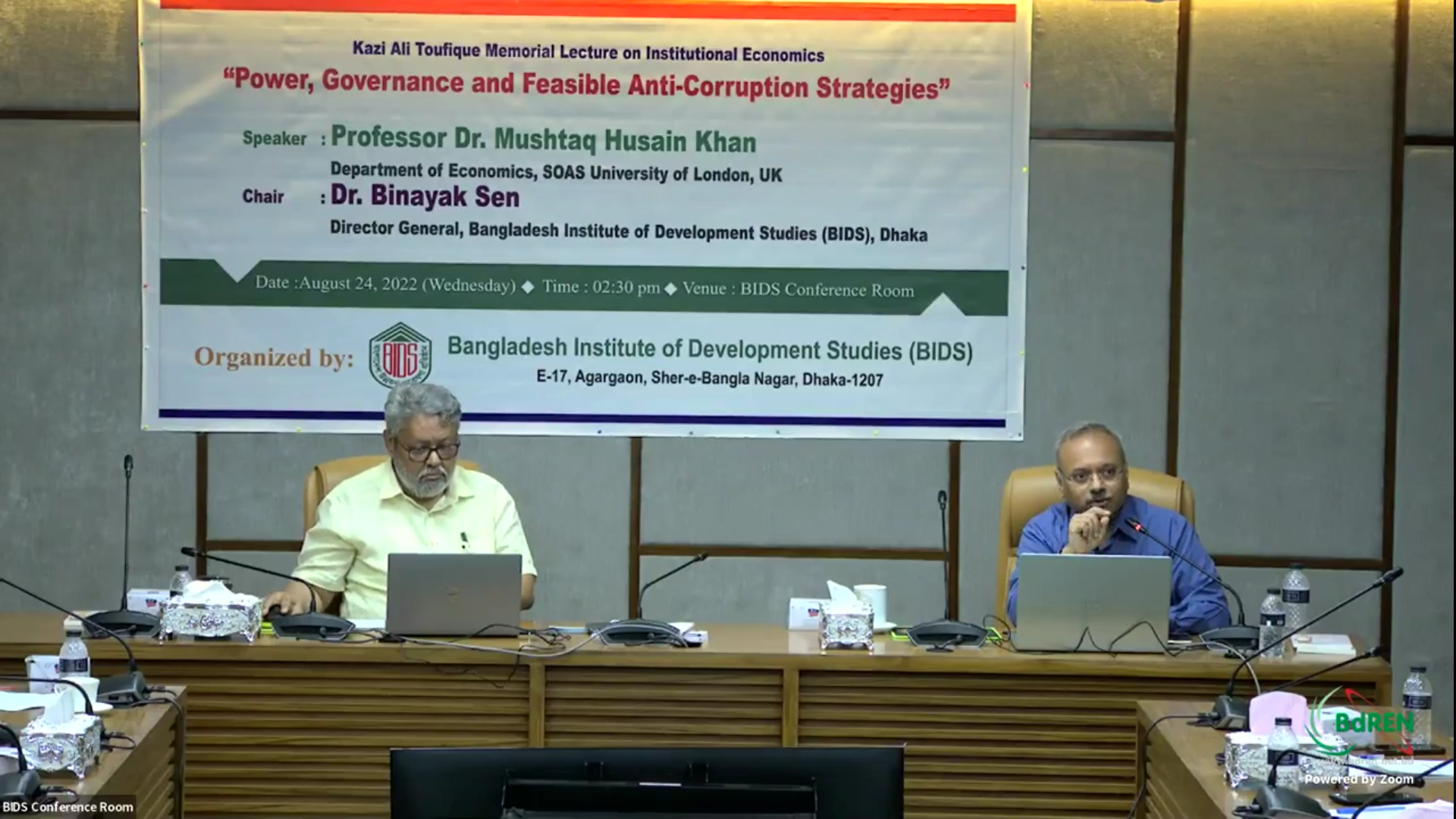Power, Governance and Anti-Corruption Strategies
Bangladesh Institute of Development Studies (BIDS) organized the first Kazi Ali Toufique memorial lecture on Institutional Economics titled “Power, Governance and Anti-Corruption Strategies” on August 24, 2022 in the BIDS Conference Room. Mushtaq Husain Khan, Professor of Economics, SOAS, University of London delivered this lecture.
Prof. Khan provided insight on locating evidence-based anti-corruption tactics that are workable and effective. The principal-agent model and its relationships in respect to anti-corruption were discussed. The fact that principals and agents are always entangled in horizontal relationships was one of the talk's standout elements. The power, capabilities, and interests (PCI) method was then explored in respect to how it affects how the principal and agent relationship is handled. Additionally, it was addressed how effective the rule of law is in wealthy nations at preventing corruption. On the other side, the rule of law is not very successful in emerging and developing countries; instead, there are loose regulations and informal enforcement, which provides opportunity for corruption. Additionally, there are problems in the rule-making process. For instance, if the regulations are correctly applied, they may minimize corruption, but they will damage small and medium-sized businesses (SMEs). He then discussed many levels of corruption, including predatory corruption, political corruption, policy-dictorting corruption and market restriction-driven corruption, among which the policy-distorting corruption stages occupy the majority of the discussion. The topic then turned to how to apply the notion of operating horizontal checks to both high- and low-corruption agencies.
This lecture was attended by academicians, policy-makers, development practitioners and journalists. Dr. Binayak Sen, the Director General of BIDS chaired the event.
The paper Link : https://doi.org/10.1016/j.
